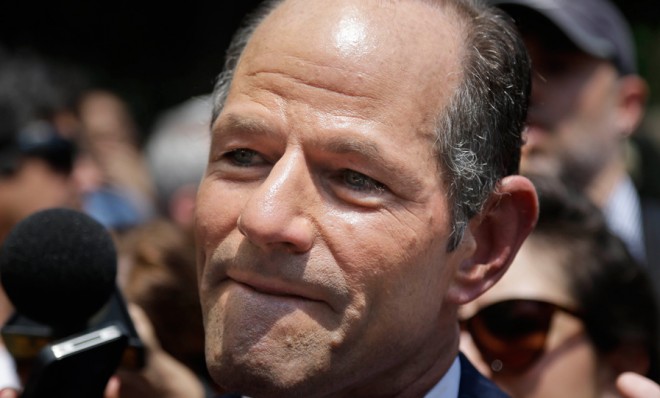What the heck does New York City's comptroller do anyway?
Former Gov. Eliot Spitzer's campaign has raised the little-known office to national prominence


A free daily email with the biggest news stories of the day – and the best features from TheWeek.com
You are now subscribed
Your newsletter sign-up was successful
Former New York Gov. Eliot Spitzer (D) is making his big return to politics with a bid to become New York City's next comptroller.
Spitzer famously left office after a prostitution scandal turned him from a crusading governor into a late-night TV punch line, and his decision to run has elevated the race for what is typically considered a "low-wattage office" onto the national stage. In the same way, former Rep. Anthony Weiner (D), another New York politician felled by a sex scandal, has added a new nationally relevant angle to the city's mayoral race.
Yet while most people understand, basically, what a mayor does, the comptroller's position is far more esoteric.
The Week
Escape your echo chamber. Get the facts behind the news, plus analysis from multiple perspectives.

Sign up for The Week's Free Newsletters
From our morning news briefing to a weekly Good News Newsletter, get the best of The Week delivered directly to your inbox.
From our morning news briefing to a weekly Good News Newsletter, get the best of The Week delivered directly to your inbox.
The comptroller is essentially the city's chief financial officer, whose job is to "ensure the financial health of New York City by advising the Mayor, the City Council, and the public of the City's financial condition," according to the comptroller's government website. (A full legal description of the position from the city runs 159 pages.)
In practice, that means the comptroller audits city agencies, and provides fiscal input on existing and proposed business dealings, contracts, and budget policies.
"The comptroller basically serves as a check and balance on the mayor and the city council and the other branches of government," Hunter College political science professor Kenneth Sherrill tells Gothamist.
The position is more than just advice and auditing though. The comptroller also manages the city's five big pension funds, overseeing a combined $140 billion in assets for nearly 600,000 city employees and retirees. Through that duty, the comptroller works with Wall Street firms to ensure the money is invested wisely, and that public sector employees aren't getting ripped off.
A free daily email with the biggest news stories of the day – and the best features from TheWeek.com
Given how close the comptroller works with big banks, there's always a fear of corruption and shady financial dealings stemming from that office. That's why some think Spitzer is perfect for the post. He became governor after sparring with the financial industry as New York state's attorney general, earning a reputation as a hard-nosed sheriff of Wall Street.
Spitzer even wrote an article for Slate at the height of Occupy Wall Street explaining how city comptrollers could take on banks to better protect average folks.
The actual ownership of major banks, manufacturers, and retail giants resides in vast repositories of capital that are owned and controlled by the public: mutual funds, public pension funds, and endowments at public institutions. If the public exercised its huge ownership capacity by influencing board member selection, compensation, and political donations, then these companies would be fundamentally altered. [Slate]
That may explain what Spitzer means when he says he wants to "do to that office what I did to the attorney general's office, re-envision it, re-imagine it."
Oh, and it's pronounced "controller."
Jon Terbush is an associate editor at TheWeek.com covering politics, sports, and other things he finds interesting. He has previously written for Talking Points Memo, Raw Story, and Business Insider.
